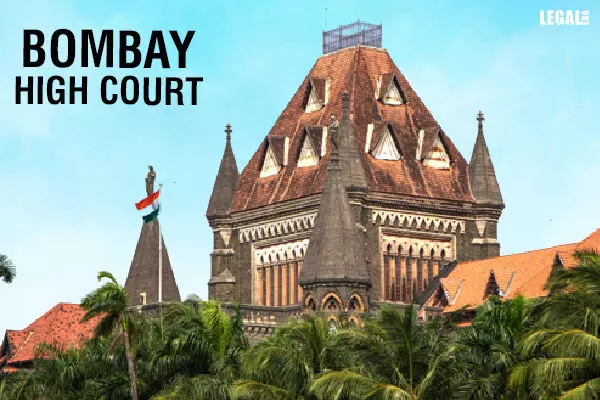- Home
- News
- Articles+
- Aerospace
- Artificial Intelligence
- Agriculture
- Alternate Dispute Resolution
- Arbitration & Mediation
- Banking and Finance
- Bankruptcy
- Book Review
- Bribery & Corruption
- Commercial Litigation
- Competition Law
- Conference Reports
- Consumer Products
- Contract
- Corporate Governance
- Corporate Law
- Covid-19
- Cryptocurrency
- Cybersecurity
- Data Protection
- Defence
- Digital Economy
- E-commerce
- Employment Law
- Energy and Natural Resources
- Entertainment and Sports Law
- Environmental Law
- Environmental, Social, and Governance
- Foreign Direct Investment
- Food and Beverage
- Gaming
- Health Care
- IBC Diaries
- In Focus
- Inclusion & Diversity
- Insurance Law
- Intellectual Property
- International Law
- IP & Tech Era
- Know the Law
- Labour Laws
- Law & Policy and Regulation
- Litigation
- Litigation Funding
- Manufacturing
- Mergers & Acquisitions
- NFTs
- Privacy
- Private Equity
- Project Finance
- Real Estate
- Risk and Compliance
- Student Corner
- Take On Board
- Tax
- Technology Media and Telecom
- Tributes
- Viewpoint
- Zoom In
- Law Firms
- In-House
- Rankings
- E-Magazine
- Legal Era TV
- Events
- Middle East
- Africa
- News
- Articles
- Aerospace
- Artificial Intelligence
- Agriculture
- Alternate Dispute Resolution
- Arbitration & Mediation
- Banking and Finance
- Bankruptcy
- Book Review
- Bribery & Corruption
- Commercial Litigation
- Competition Law
- Conference Reports
- Consumer Products
- Contract
- Corporate Governance
- Corporate Law
- Covid-19
- Cryptocurrency
- Cybersecurity
- Data Protection
- Defence
- Digital Economy
- E-commerce
- Employment Law
- Energy and Natural Resources
- Entertainment and Sports Law
- Environmental Law
- Environmental, Social, and Governance
- Foreign Direct Investment
- Food and Beverage
- Gaming
- Health Care
- IBC Diaries
- In Focus
- Inclusion & Diversity
- Insurance Law
- Intellectual Property
- International Law
- IP & Tech Era
- Know the Law
- Labour Laws
- Law & Policy and Regulation
- Litigation
- Litigation Funding
- Manufacturing
- Mergers & Acquisitions
- NFTs
- Privacy
- Private Equity
- Project Finance
- Real Estate
- Risk and Compliance
- Student Corner
- Take On Board
- Tax
- Technology Media and Telecom
- Tributes
- Viewpoint
- Zoom In
- Law Firms
- In-House
- Rankings
- E-Magazine
- Legal Era TV
- Events
- Middle East
- Africa
Bombay High Court Quashes Order Rejecting IGST Refund Considering Nascent Stage Of GST Rules

Bombay High Court Quashes Order Rejecting IGST Refund Considering Nascent Stage Of GST Rules
Remands the matter for reconsideration, directing the authorities to reconsider the application on its merits
The Bombay High Court has quashed the order rejecting Integrated Goods and Service Tax (IGST), stating that it was passed unreasonably.
The bench of Justice K.R. Shriram and Justice Jitendra Jain noted that the Central Goods and Services Tax (CGST) Commissioner did not possess the power to condone the delay, but the writ court did.
The court stated, “Our conscience does not permit us to reject the cause shown as bogus because the petitioner was an individual and the Goods and Services Tax (GST) regime was at a nascent stage. Moreover, in both orders impugned in the petitions, there is no mention of the merits of the application.”
The petitioner-assessee, Air Miracle, undertakes heating, ventilation, air conditioning, and cleaning room projects for hospitals, pharmaceutical companies, IVF laboratories and biotech laboratories.
It supplied goods to an export unit, Apothecon Pharmaceuticals Pvt Ltd, charging IGST at the rate of 18 percent per annum and discharged the IGST liability.
The assessee was entitled to a refund of the IGST paid and filed an application for a refund, claiming Rs.17,52,468. The application was rejected via a 21 September 2019 order, passed by the Assistant Commissioner, without citing any reason.
The assessee appealed against the order before the Commissioner of CGST and Central Excise, who rejected the appeal. The authorities stated that it should have been filed within three months with a provision to extend by one month upon sufficient cause. But it was filed 29 days late and hence barred by limitation.
The Commissioner noted not having the power to extend the time limit after the extendable one-month period was over.
The petitioner challenged the order passed by the Assistant Commissioner of CGST and Central Excise and an order passed by the Commissioner of CGST and Central Excise.
The department contended that if the petitioner had not approached the court within the prescribed time, the latter could not exercise its jurisdiction under Article 226 of the Constitution of India.
However, Justice Shriram and Justice Jain rejected the department's argument, stating that the writ jurisdiction was invokable under Article 300A. They remanded the matter for reconsideration, directing the department to reconsider the application on its merits.



